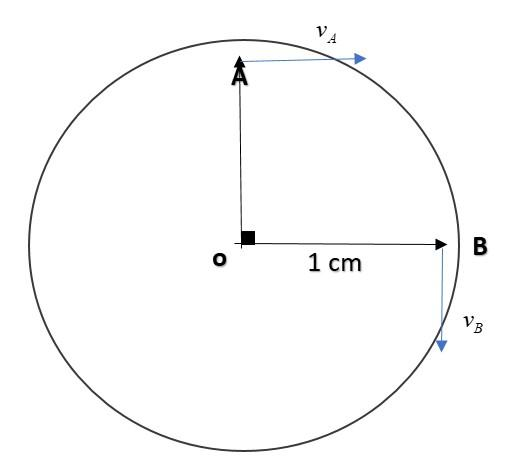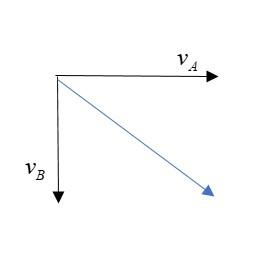Question
Question: The length of second’s hand in a watch is 1cm. The change in velocity of its tip in 15 seconds is: ...
The length of second’s hand in a watch is 1cm. The change in velocity of its tip in 15 seconds is:
A.Zero
B.302πcm/s
C.30πcm/s
D.30π2cm/s
Solution
There are majorly two types of quantities, scalar and vector quantities. All the quantities are divided into these two categories. Scalar quantities are those quantities, which have only magnitude eg – mass, speed, pressure, etc. Vector quantities are those which have both magnitude and directions eg – weight, velocity and thrust. For instance, speed is a scalar quantity and velocity is a vector quantity.
Formula used:
Change in velocity = v2−v1
Complete answer:
How do we measure scalar quantity?
Like mass is a scalar quantity, hence can be measured by the scalar sum (normal sum) of individual mass.
How do we measure vector quantity?
Like velocity is a vector quantity, hence can be measured by the laws of vector addition. In general to get change in velocity, we need to do vector subtraction of the velocities at the two points.
Now, second’s hand takes 60 seconds for full rotation i.e. 360∘
It will take 1 second for 60360∘=6∘
So in 15 seconds, it will turn 15×6∘=90∘
Also the speed with which it rotates is:
Speed = rate of change of distance
It makes full rotation in 60 sec means it’s tip travels 2πR(circumference) in 60 seconds.
Hence speed = 602π1=30πcm/s

Now, from the diagram, we can see the two vectors (vA, vB) are at 90∘ and we need to find the magnitude of vA−vB.
Now, it could be done as follows:

Where the angle between both velocity vectors is 90∘ and the blue arrow will give the resultant of both velocities.
Change in velocity = vA2+vB2−2vAvBcos(90∘)
As cos(90∘)=0 and magnitude of both velocities is same (v, say) = 30πcm/s
Hence, change in velocities = v2+v2=v2=30π2cm/s
Thus, option D is correct.
Note: To calculate the change in a vector quantity, we can’t do it algebraically. We have to do it by vector subtraction. Also there is an important property of vectors that they can be displaced anywhere hence we placed the vectors with the angle between them and calculated the resultant.
